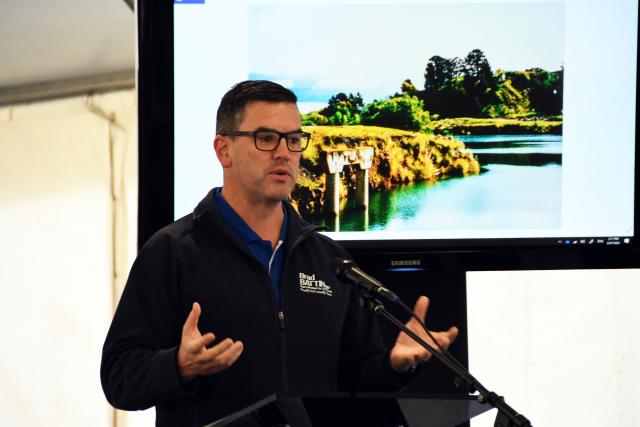Berwick MP Brad Battin has hit out at the State Government’s decision not to give police any new powers once public drunkenness laws are abolished in Victoria later this year.
The Government announced on Tuesday 17 January that Victoria will decriminalise public drunkenness in November 2023, replacing the criminal justice based approach with a health based response.
But Mr Battin, along with The Police Association, argued that making the changes without putting move on orders in place would pose a risk to the community.
“Our view is quite simple, we’re not against the decriminalisation of public drunkenness, but, in line with The Police Association, we have issues around the removal of power for Victoria Police…they need to be able to keep those rules in place whilst we endorse a health response to keep our community safe,” Mr Battin said.
Chief executive of The Police Association Wayne Gatt said the reform plans are “a tragedy waiting to happen”.
“The government has written police entirely out of the equation when it comes to dealing with those who are drunk in public,” Sgt Gatt said in a statement.
“Under this new response model, soon to be introduced by the Government, police will only respond once a crime is committed. That is, when it’s too late.”
Speaking to reporters on Tuesday, Victorian Attorney-General Jaclyn Symes defended the reforms, stating replacing the laws with move on powers “undermines the whole purpose” of the reform.
“These laws are about decriminalising public intoxication, they are not about dilating any further police powers, they are not about ensuring being drunk is an excuse or a get out of jail free card for other offences,” she said.
“Police will still have the options of stepping in when somebody is disturbing the peace, causing a scene or have concerns about violent behaviour or the like. We expect that that would be a continued response.”
The new response will see intoxicated individuals taken home to friends and family, or to specially designed ‘sobering up centres’ instead of police stations.
But Mr Battin, who is shadow minister for police and emergency services, said he holds concerns for the logistics of the plan.
“It’s a big concern, which the Police Association has raised as well, in that there’s not actual infrastructure or services currently in place to fix the problem,” he said.
Of additional concern is the pressure the changes could put on ambulance and emergency department services, Mr Battin said.
“What we don’t want is ambulances being used like taxis for drunk people when they could be assisting people in life threatening situations,” he said.
The reforms were implemented after the recommendation of a government panel into the death of Yorta Yorta woman Tanya Day in police custody in 2017.
In a statement, the Day family said it welcomed the changes, including the government’s decision “not to add or replace already excessive police powers and laws.”
“Our mother would still be here with us today if Victoria police had treated her condition seriously and cared for her with a public health response, but they chose to criminalise her at her most vulnerable time,” the family said.
” She was left to die alone on the floor of a police cell after the officers responsible for monitoring her failed to adequately care for her as required by the Victoria Police guidelines.
“As our mother’s case shows, police cells are dangerous places for those intoxicated, especially our Aboriginal and Torres Strait Islander communities.
“No person should ever be locked up just for being drunk in public, and there should be no role for police or police cells in a public health response.”







